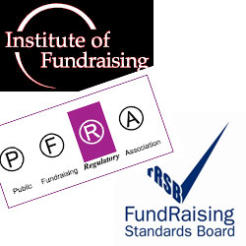Paul Amadi, director of fundraising at the NSPCC, has suggested that the number of regulatory and representative bodies in the charity sector is cumbersome and not cost-effective, and called for the sector bodies to consider merging.
Writing in a personal capacity in an opinion piece for Fundraising magazine, published today on CivilSociety.co.uk, the former chair of the Institute of Fundraising says that charities can spend a large amount of donors' money on membership fees and levies to the Fundraising Standards Board, PFRA, the Institute and other sector bodies, and asks whether “it’s not now time for the sector to start asking itself some overdue questions about whether our regulatory framework is still fit for purpose”.
The NSPCC, says Amadi, pays nearly £100,000 a year to various sector bodies – money which donors would probably prefer to be spent on the cause.
He suggests that the PFRA and FRSB, both of which were originally housed in the Institute of Fundraising, might serve charities more efficiently if they re-merged with the Institute, sharing, as a start, back-room functions and the like. Amadi says that given the low number of complaints which reach board level adjudication at the FRSB, the complaint adjudication function could be held by the Institute and conducted by volunteers.
Amadi goes further, suggesting that perhaps in future the Institute, CFDG and Acevo should consider merging into one organisation representing the whole gamut of the sector.
Simon Morrison, director of marketing and communications at the Institute, said that the organisation would not respond to the individual comments of a member.
“We continue to support the whole concept of self-regulation for the industry. It’s the best way forward,” he said.
Asked whether the Institute was looking into the prospect of re-merging, Morrison said. “That’s not something that’s even on our radar.”
Colin Lloyd, chairman of the FRSB, said that while Amadi “asks some valid questions”, the current situation serves the sector best.
“Self-regulation is and must continue to be a robust, independent scheme that does not just garner expertise from within the sector, but also considers the public’s views. The FRSB’s real strength is its independence from the sector. It is headed up by an independent board, made up of both charity and lay representatives,” said Lloyd.
“It is by no means unique to the fundraising profession, that compliance with best practice standards is monitored by an entirely independent body to that which sets codes of practice. This independence and transparency is a critical factor in helping build public trust and confidence in charities across the sector.”
In Amadi’s piece he estimates in 2009 the FRSB cost-per-complaint handled by officers was around £30,000. The FRSB has responded that its fees are low and fair. “It is not helpful and far too simplistic to quote cost per complaint,” said Lloyd. “ The FRSB fee structure is on a sliding scale from as little as £30 per member to a maximum of £5,000 for the very largest charities. Our average audited fee is less than £330 per annum. This is a fee level that provides good value for money and is not excessive for giving public trust and confidence in giving.”
PFRA chair Michael Naidu said that Amadi is right to be questioning value for money and whether things might be done more efficiently.
"However, the political, legal and logistical landscape of face-to-face fundraising has changed radically since the PFRA separated from the IoF in 2003. I think Paul might be surprised by the complexity of the work we currently do in liaising with local councils to ensure sustainable fundraising access for charities and policing best practice standards,” said Naidu.
"On a point of governance, PFRA has 130 charity and agency members and each of those would need to vote on and approve any change to our constitution, such as merging with another sector body."
Paul Amadi suggests PFRA and FRSB should merge back into the Institute
03 Jun 2011
News
Paul Amadi, director of fundraising at the NSPCC, has suggested that the number of regulatory and representative bodies in the charity sector is cumbersome and expensive, and called for the sector bodies to consider merging.









